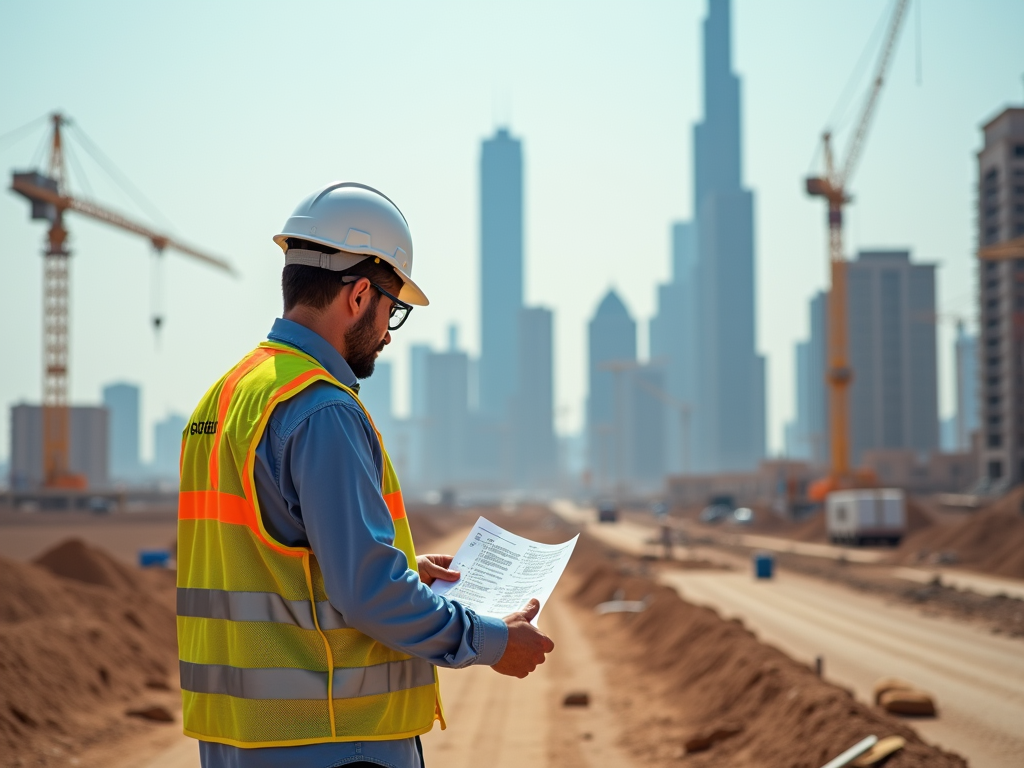Nanotechnology, the manipulation of matter on an atomic or molecular scale, plays a transformative role in Dubai’s industrial development. With its ambitious Vision 2021 and subsequent plans, Dubai aims to harness cutting-edge technologies, including nanotechnology, to boost economic diversification and sustainability. This article explores the various ways nanotechnology is shaping Dubai’s industrial landscape, focusing on sectors such as construction, healthcare, and energy. The integration of nanotechnology not only fosters innovation but also positions Dubai as a global industry leader.
Impact on the Construction Industry

The construction sector in Dubai has significantly benefited from the application of nanotechnology, which has enhanced the quality and sustainability of building materials. By incorporating nanoparticles into concrete, for example, engineers can achieve greater strength and durability, leading to longer-lasting structures. This also contributes to cost savings and reduced environmental impact. Key advancements include:
- Self-cleaning surfaces: Coatings that utilize nanotechnology can repel dirt and grime, reducing maintenance costs.
- Energy-efficient materials: Nanostructured insulation materials help in regulating building temperatures, promoting energy conservation.
- Fire-resistant materials: Nanomaterials can offer enhanced fire resistance, ensuring the safety of structures.
As Dubai continues to push for iconic architectural feats, these nanotechnology enhancements will be crucial in meeting the demands of modern construction.
Advancements in Healthcare
Nanotechnology holds groundbreaking potential within Dubai’s healthcare sector, facilitating innovations in diagnostics, drug delivery, and treatment methods. The integration of nanomaterials not only improves the effectiveness of medical treatments but also significantly reduces side effects. Notably, these advancements include:
- Targeted drug delivery: Nanoparticles can deliver drugs directly to affected areas, improving therapeutic effectiveness.
- Diagnostic imaging: Enhanced imaging techniques using nanoparticles provide greater accuracy in disease detection.
- Personalized medicine: Nano-based therapies can be tailored to individual patient needs, ensuring better outcomes.
As healthcare continues to evolve, Dubai’s investment in nanotechnology will ensure its health sector remains at the forefront of innovation, offering world-class medical solutions.
The energy industry in Dubai is experiencing a revolution, largely attributed to advancements in nanotechnology. As the Emirate shifts toward sustainable energy sources, nanotechnology plays a pivotal role in enhancing efficiency and reducing environmental impact. Significant contributions include:
- Solar energy enhancement: Nanomaterials improve the efficiency of photovoltaic cells, enabling more effective energy capture from sunlight.
- Energy storage solutions: Nanostructured batteries and supercapacitors offer higher energy density and faster charging capabilities.
- Hydrogen production: Nanotechnology facilitates more efficient water-splitting methods for clean hydrogen production.
By adopting these innovations, Dubai not only enhances its energy output and sustainability but also strengthens its position as a leader in renewable energy technologies.
Contributions to Sustainable Development
Dubai’s commitment to sustainable development is further bolstered by the contributions of nanotechnology. By addressing environmental challenges through innovative solutions, nanotechnology promotes a circular economy and resource efficiency. Key areas of focus include:
- Water purification: Nanotechnology enables the development of advanced filtration systems that remove contaminants, ensuring clean drinking water.
- Waste management: Nanoscale materials help in the recycling process, enhancing the recovery of valuable resources.
- Pollution control: Nanocatalysts can reduce emissions from industrial processes, leading to cleaner air and ecosystems.
By integrating these sustainable practices, Dubai aims to create a greener future while driving economic growth through nanotechnology.
Conclusion
In conclusion, nanotechnology holds significant promise for Dubai’s industrial development, influencing various sectors such as construction, healthcare, energy, and sustainability initiatives. Its ability to enhance material properties, improve efficiencies, and foster innovation positions Dubai as a leading hub for technological advancements in the region. As the Emirate continues to embrace this cutting-edge technology, it not only drives its own industrial progress but also sets a benchmark for future developments on a global scale.
Frequently Asked Questions
1. What is nanotechnology?
Nanotechnology is the manipulation of matter on an atomic or molecular scale, typically at dimensions between 1 and 100 nanometers. It is utilized across various fields to create new materials and devices with unique properties.
2. How does nanotechnology benefit the construction industry in Dubai?
Nanotechnology enhances building materials leading to stronger, more durable constructions, self-cleaning surfaces, energy-efficient insulation, and improved fire resistance, thus promoting sustainability and cost savings.
3. In what ways is nanotechnology impacting healthcare in Dubai?
Nanotechnology is facilitating advancements in targeted drug delivery, diagnostic imaging, and personalized medicine, improving treatment efficacy while minimizing side effects for patients in Dubai.
4. What are the implications of nanotechnology in renewable energy?
Nanotechnology improves the efficiency of solar cells, enhances energy storage solutions, and contributes to clean hydrogen production, all of which support Dubai’s transition to sustainable energy sources.
5. How does nanotechnology promote sustainability in Dubai?
By enabling advanced water purification systems, enhancing waste management and recycling processes, and improving pollution control, nanotechnology supports Dubai’s commitment to a sustainable future.
